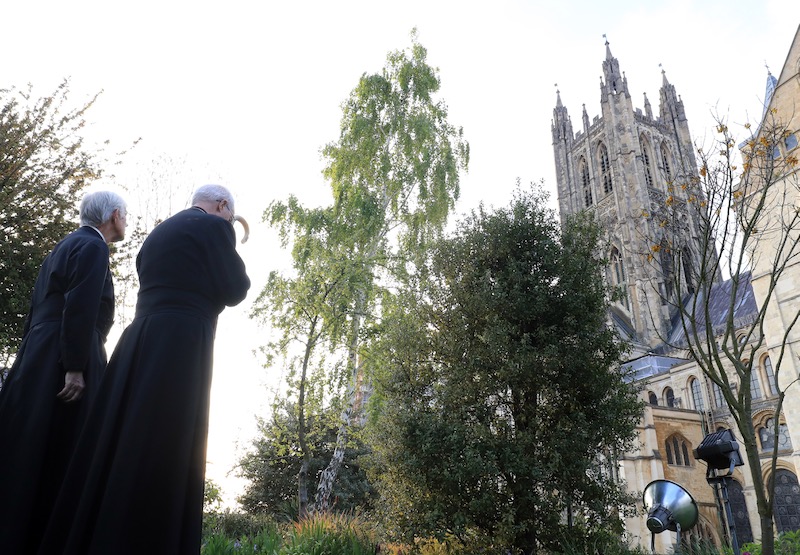Somewhere “in the corner of a foreign field”, Army map reference 62d.F.1.d.9.9, lie the mortal remains of Lieutenant Stanley Anson of the East Yorkshire Regiment, beloved brother of my paternal grandmother. He never made it to the Battle of the Somme, soon to start, as he was killed by a German raiding party while successfully defending his trenches at night. A colleague and fellow fatal casualty won the Victoria Cross in that otherwise insignificant skirmish. I like to think the glory reflected well on all of them, Stanley too.
In what sense were they not citizens of Europe? They died defending the best of European values against the worst. Germany was not a direct threat to Britain, but had brutally invaded its neighbours, specifically France and Belgium, with whom Britain had treaties and alliances.
What would they have made of Brexit? Had Lieut Anson lived and had a family, my guess is that his descendants, if still in Yorkshire, would have been patriotically pro-Brexit. National sovereignty is something they would have taken for granted, and German aggression was manifestly a breach of it. Such principles had to be defended. On the other hand the British Army was – or was soon to become –under the overall command of Marshal Ferdinand Foch, head of the French army. Pooling sovereignty was sometimes in the national interest.
I am not sure I agree with the President of France, Emmanuel Macron, however, that Brexit was largely “the result of many lies and false promises” told to the British people in the 2016 referendum campaign. Promises were made and have yet to be fulfilled, certainly, but I do not believe Yorkshiremen, or indeed any Briton, is as easily deceived, bribed and bullied as he implies. There was a germ of truth to Brexit. Pooling of sovereignty has a down side; it can infringe one's basic sense of national identity, of who one is. Whether that was worth the gain from Britain's membership of the European Union is an inscrutable question that does not respond to rational analysis.
Where the pro-EU side went wrong, I believe, was in underselling the value of European citizenship. If the diminishment of sovereignty meant a diminishment of Britain's national identity, that could have been more than compensated for by promoting the idea of a European identity. Great Uncle Stanley did not think German aggression on the Continent was “someone else's problem, nothing to do with us”. It is interesting to ask why that penny never dropped, and why the issues were debated almost entirely in terms of economic national interest.
I feel European, and that is not wholly because I am a Catholic and lover of (almost exclusively European) classical music; and frequent holidaymaker there. Without Europe, English history makes no sense. Britain's membership of the EU allowed my European identity to feel normal, with some basis in law. As a European I could live and work anywhere in Europe, my rights protected. The European Convention on Human Rights, largely drafted by the Tory politician and lawyer David Maxwell Fyfe, was a deliberate attempt to codify English common law - translating Magna Carta and Bill of Rights tradition into Eurospeak, as it were. So Europe could feel like a home from home to any Englishman.
Like many families, we have been through the domestic archives looking for any parent or grandparent with EU ancestry, on which we could base a claim to nationality of one of the remaining 27 EU nations. In my case we have drawn a blank. My secret wish during the Brexit negotiations was that some inspired negotiator on the EU side would decide, unilaterally, to offer continued EU citizenship to any Briton who wanted it, regardless of Brexit. If it occurred to them at all, they would no doubt have argued that this might have taken away one of the reasons for staying. But citizenship ought never to be something granted or taken away as part of a package. Which is why I still feel a European citizen, but now, sadly, unrecognised by my fellow citizens.
The exception is Northern Ireland. Citizens of that province have been given the right, under the Good Friday Agreement, to apply for an Irish passport, thereby guaranteeing a seamless continuation of European citizenship for any who take up the offer. I suspect many Northern Irish residents, including members of the Unionist community, will want to do so. Why queue at passport control behind hundreds of British travellers when one can be waved through with an Irish passport? And Northern Ireland residents are also British, like me. How come one group of British citizens get to retain their legal right to European citizenship, while another group loses it?
So we anti-Brexiteers, or whatever we are now called, do feel a definite emotional sense of loss, of being robbed of an asset we valued. For a while the soil in which Lieutenant Anson's body lay was not utterly and entirely “foreign”, but part of who he was. Now the Brexiteers have made it foreign again. Some part of me will never forgive them. For Great Uncle Stanley's sake as well as my own.



 Loading ...
Loading ...
What do you think?
You can post as a subscriber user ...
User comments (0)